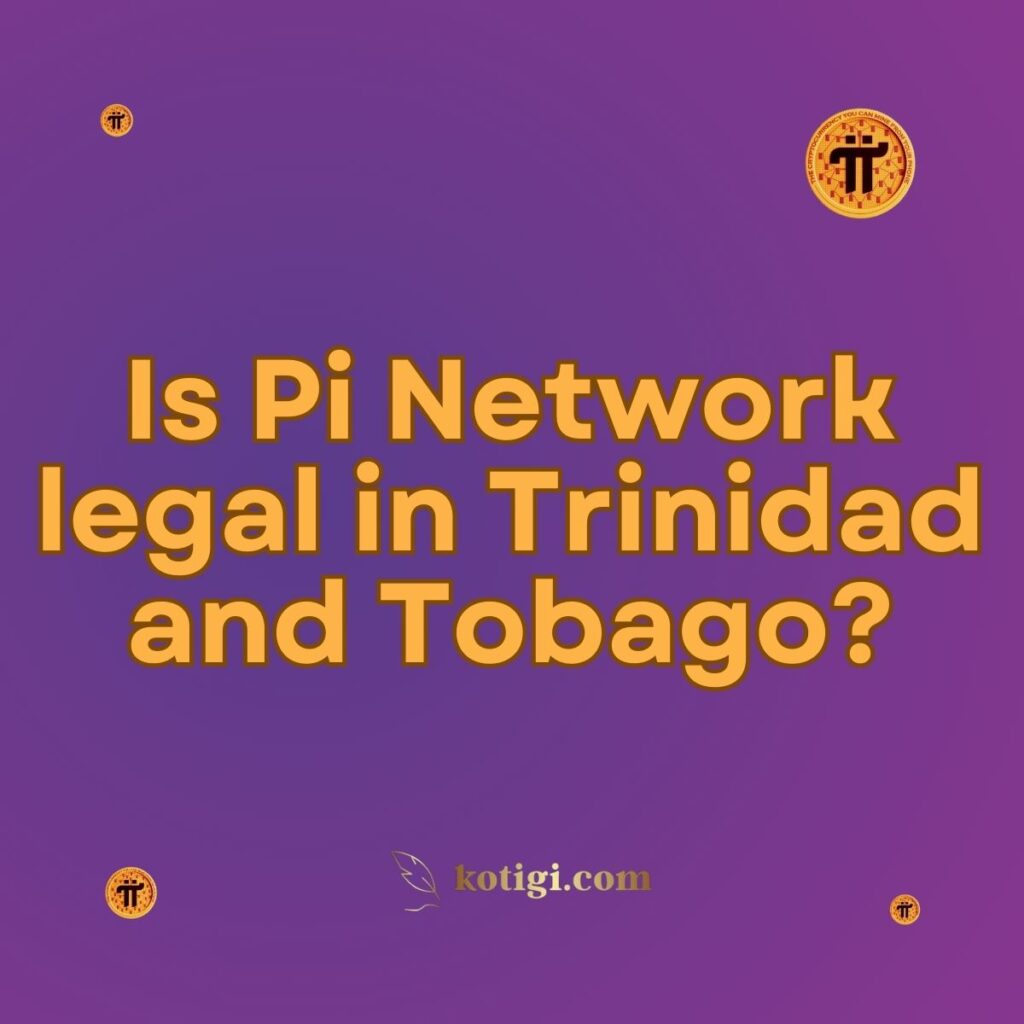
Is Pi Network legal in Trinidad and Tobago?
Yes, Pi Network is legal in Trinidad and Tobago. There are no specific regulations prohibiting its use, but users should adhere to the general cryptocurrency and financial laws in the country, particularly regarding anti-money laundering (AML) and combating the financing of terrorism (CFT) guidelines.
Introduction
The global expansion of Pi Network has sparked curiosity about its legal standing in various countries, including Trinidad and Tobago. As cryptocurrencies continue to evolve, countries are developing regulatory frameworks to manage the use of digital assets like Pi. In this article, we will explore the legal status of Pi Network in Trinidad and Tobago, review relevant regulations, and offer insights into how the platform fits into the local legal landscape. We will also discuss key considerations for Pi Network users in the country, including compliance with financial regulations.
Cryptocurrency Regulations in Trinidad and Tobago
The regulatory environment for cryptocurrencies in Trinidad and Tobago remains in its early stages. While there are no clear laws targeting Pi Network or other cryptocurrencies specifically, existing financial regulations still apply.
Overview of Financial Regulations
The Central Bank of Trinidad and Tobago (CBTT) plays a significant role in overseeing financial regulations. Though Pi Network is not yet under direct scrutiny, the CBTT follows international standards for anti-money laundering (AML) and combating the financing of terrorism (CFT).
Legal Framework for Cryptocurrencies
Currently, Trinidad and Tobago has not issued any specific legislation or guidelines that define the legal framework for cryptocurrencies, including Pi Network. Users are free to mine, use, and exchange Pi, but they must remain cautious of future regulatory changes.
Government’s Caution
The government has expressed concerns regarding the risks associated with cryptocurrencies. While not outlawing Pi Network, the authorities stress the need for careful consideration of how cryptocurrencies are used to protect against fraud and financial crimes.
Compliance and Pi Network Users
While Pi Network operates legally in Trinidad and Tobago, users must be aware of the broader financial regulations that govern digital currencies. Staying compliant with these rules is crucial for avoiding legal challenges.
AML and CFT Compliance
One of the key regulatory frameworks to consider is AML and CFT compliance. The Central Bank mandates that any financial transactions, including those involving cryptocurrencies like Pi, must not be used for money laundering or terrorism financing.
Reporting and Record-Keeping
Pi Network users should be mindful of large transactions and ensure they maintain records of their activities. Failure to report suspicious transactions could lead to legal complications, as authorities actively monitor for potential violations.
Tax Implications
While Pi tokens are not yet classified as official currency in Trinidad and Tobago, any profit derived from their use may be subject to tax regulations. It is essential for Pi Network users to be aware of potential tax liabilities.
Legal Risks for Pi Network in Trinidad and Tobago
Despite being legal, Pi Network users in Trinidad and Tobago must remain vigilant about the legal risks associated with the platform. The evolving nature of cryptocurrency regulations poses uncertainties.
Absence of Clear Guidelines
One of the primary concerns is the lack of clear guidelines regarding the use of Pi Network. This creates a legal grey area, which could become problematic if the government decides to impose stricter regulations.
Volatility and Market Risks
As a cryptocurrency, Pi tokens are subject to fluctuations in value. This market volatility introduces financial risks for users who hold Pi for long periods or engage in speculative activities.
Risk of Fraud and Scams
The growing popularity of Pi Network in Trinidad and Tobago has attracted scammers. Users should be cautious of phishing attacks and fraudulent platforms pretending to be part of Pi Network’s official ecosystem.
Future Outlook for Pi Network in Trinidad and Tobago
The future of Pi Network in Trinidad and Tobago is closely tied to the development of cryptocurrency regulations. While the current landscape permits its use, changes in policy could alter the legal standing of Pi Network.
Potential for Regulatory Changes
As Pi Network continues to grow in popularity, the government of Trinidad and Tobago may eventually introduce specific cryptocurrency regulations. These new regulations could either support the growth of the digital economy or impose restrictions on cryptocurrency usage.
Increasing Blockchain Adoption
Blockchain technology is gaining traction globally, and Trinidad and Tobago is not an exception. As Pi Network champions decentralization, it could play a key role in promoting the use of blockchain for financial innovation in the country.
Long-Term Legal Considerations
Pi Network users in Trinidad and Tobago should stay informed about any updates in the legal framework. Staying compliant with evolving regulations will be critical to ensuring continued access to the platform.
Conclusion:
In conclusion, Pi Network is currently legal in Trinidad and Tobago, operating within the country’s general cryptocurrency landscape. However, the lack of specific regulations creates some uncertainty. Users must remain vigilant, particularly in adhering to AML and CFT requirements. By following official guidelines and monitoring any future legal changes, Pi Network users in Trinidad and Tobago can ensure they continue to use the platform safely and legally.
Key Takeaways:
- Pi Network is legal in Trinidad and Tobago as there are no specific regulations banning its use.
- Users must comply with AML and CFT regulations to avoid legal issues.
- The Central Bank monitors cryptocurrency activity, though Pi Network is not directly regulated.
- Risks include market volatility and scams, which users should actively guard against.
- Future regulatory changes may affect Pi Network’s legal status in Trinidad and Tobago, so staying informed is crucial.





